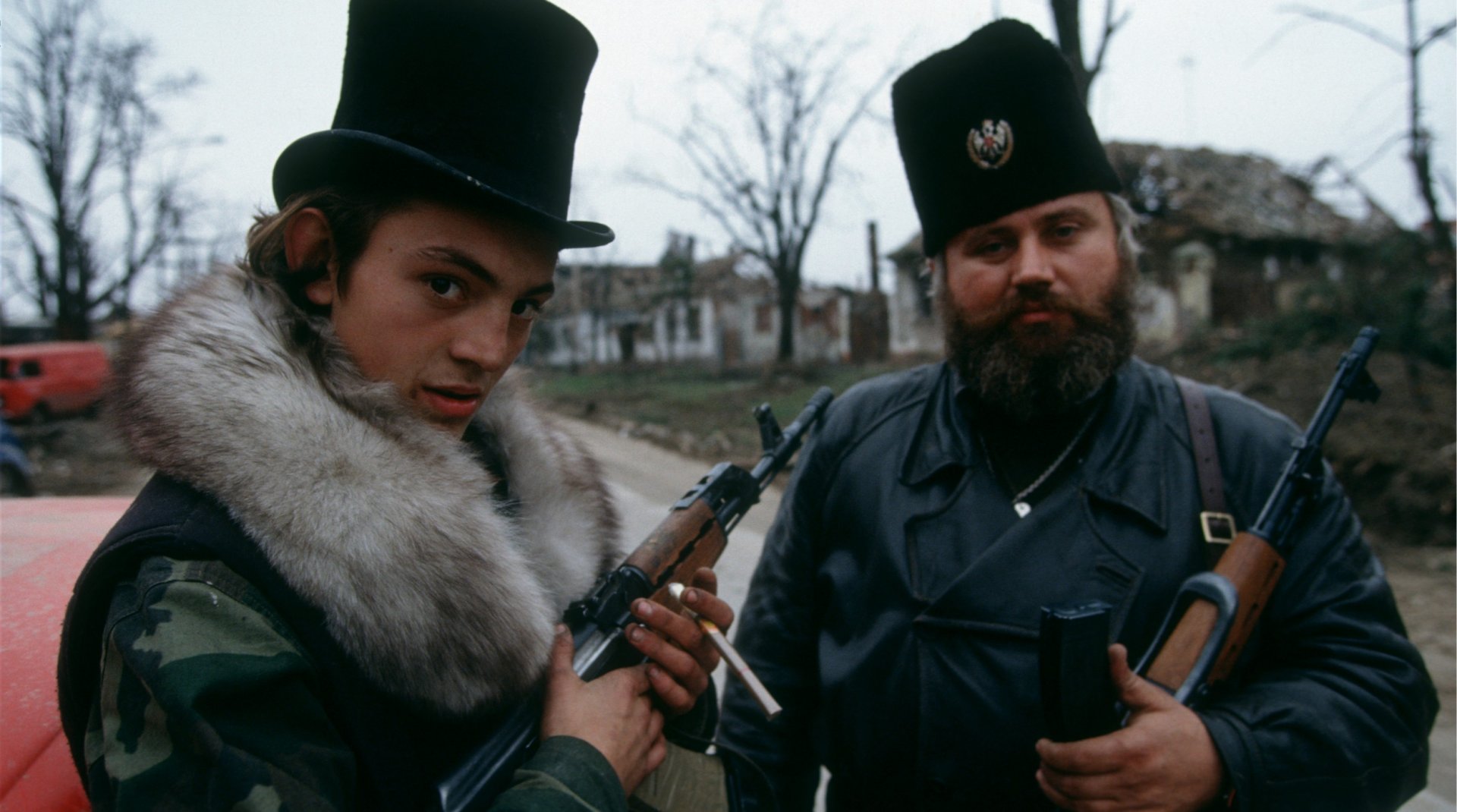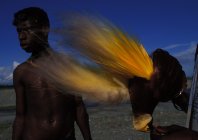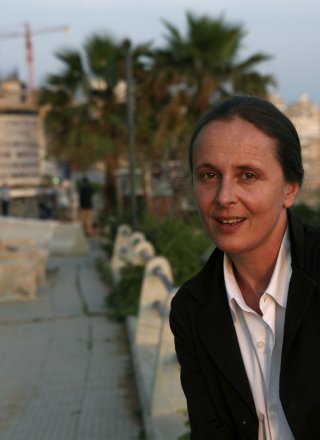
Come on, come on!
Alexandra Boulat
VII
No way in the world would Alexandra Boulat have missed the 20th Visa pour l’Image. She would be there sporting one of three mini-skirts bought in a lightning trip to Paris, wearing it for the first time and sitting at the sidewalk café beneath the Castillet. She would be there walking the length and breadth of the Couvent des Minimes and the Eglise des Dominicains, excited and envious as she spotted the best news photos of events that she had missed; and she would always find a reason to laugh.
At the age of 45, Alex still kept on wondering: “What’ll we do when we grow up?” But while she refused to acknowledge it, Alex had grown up and achieved greatness, at least in our world, the world of tough men and women, soft-hearted underneath, and prepared to do anything to get the right picture at the right time. That was exactly her art and skill, far more so than making long speeches or small talk. The world could have come to an end, and the only thing Alex would be interested in was being there. From time to time, she’d say it was a shame not to have led the life of a “normal” woman; but then she would get the next assignment - from Time, Newsweek, National Geographic, the Figaro or Paris-Match where her father, the hugely talented photographer Pierre Boulat, had worked as part of the previous generation. “I was dipped into the developing tank at birth”, said Alex who made a conscious choice to follow in her father’s footsteps, surrounded by memories of him.
When it was time to set off on an assignment, two black suitcases contained cameras, cords and transmission gear, all packed in perfect order.
Preview





From Sarajevo to Kabul, from Baghdad to Gaza, under all and any conditions – bullets flying past, no water or food, an ongoing siege – Alex would never be put off. When she found the story there in front of her, she devoted so much energy to it, you could literally feel the vibes. Here eye was sharp, perceptive and distinctive, and drew acclaim in the form of top international awards for photojournalism. When the story proved elusive, she would be furious. She would resort to any means to get what she wanted: she could turn on the charm, play on the emotions, appeal for indulgence, argue convincingly, or bully, until either fate or gullible colleagues would finally succumb. Then she would apologize, turning up with a bunch of flowers or a kitsch trinket found in a bazaar. Her frankness was disarming. Years ago, she was both a beginner and the only woman at a press conference here in Perpignan, together with some of the all-time greats in photojournalism, each one espousing noble causes and asserting his commitment. When asked why she was a photojournalist, Alexandra Boulat simply replied: “Because I like taking photos.” That said it all; but she did tell her story: Alexandra had started with Cosmos, the agency founded by and run by her mother, Annie; she had learnt a great deal with Sipa, and had then chosen to set up VII with other leading names in the photography business. The Internet and digital technology had started a revolution and somehow made news coverage seem more mundane. Alex decided that it was time to have a more in-depth view of events. When working on a report, she was indefatigable; with just a room service tray, she would spend her evenings editing, sorting, and sending pictures, answering e-mails and looking towards new horizons. She wanted to do documentary films; she liked sharing her experience with students through seminars which would leave her absolutely radiant. I often saw Alex walking across battle fields, holding her head aloft with great dignity, and had seen that so many times that we had forgotten she was mortal. On October 5 last year, after a cerebral aneurysm and three months in a coma, Alex passed away. That is the one and only reason for her not being here in Perpignan. We would have seen her before the party chatting with her mother, Annie, and her sister, Antoinette, perched on the bed in her room – always the same one – at the Park Hotel.
When she was in a good mood, she could be heard singing “Recognition is publication” to the tune of “For he’s a jolly good fellow”. This time recognition is in the form of her exhibition, presenting photos that stand as records, selected individually by those closest to her. They tell the truth about the lives of others, while also showing us what Alexandra is for them, forever. “Come on, come on!” she used to say, then: “Let’s move on”. That is what she would have wanted.
Caroline Mangez





